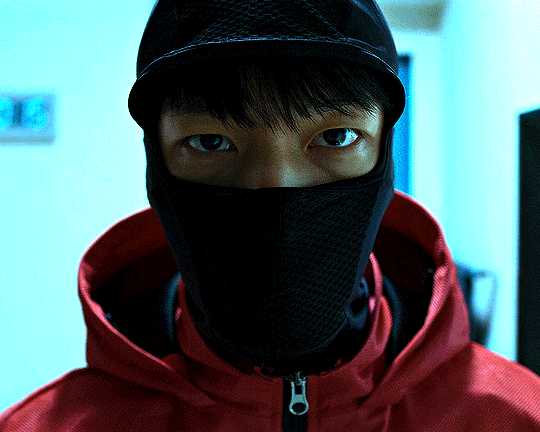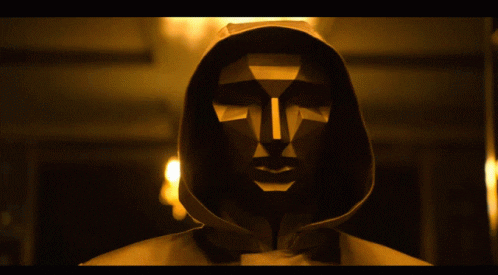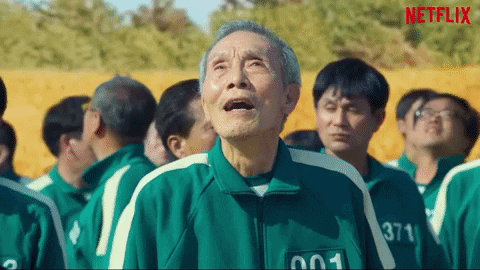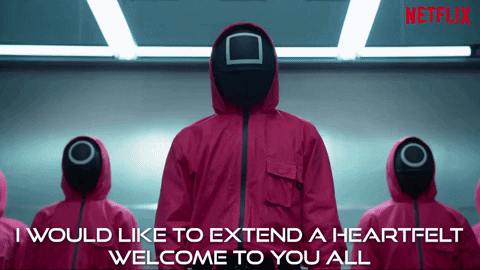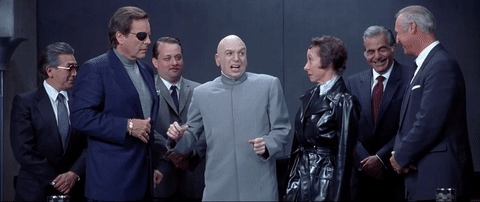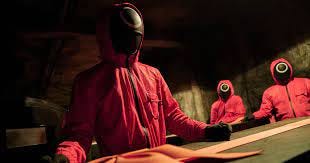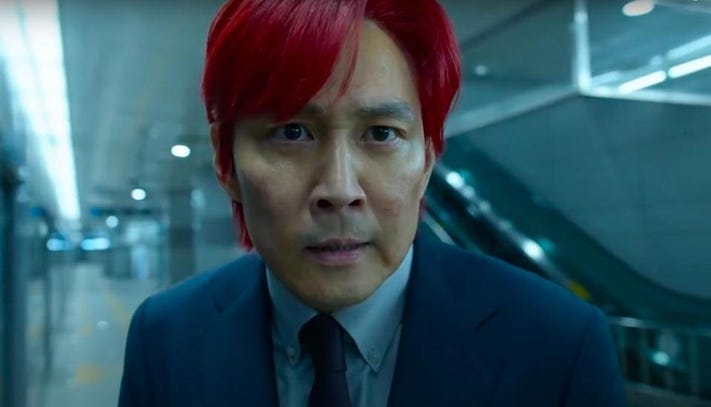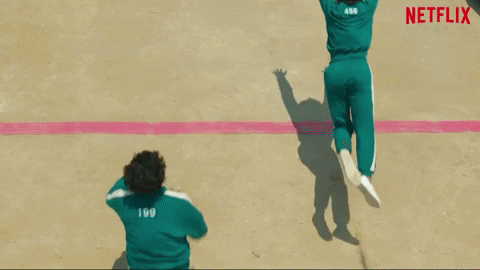How to Make Squid Game Better
A detailed rewrite of the Netflix series to strengthen storylines and characters, and eliminate distractions.
Beware: spoilers ahead. This article is written with the assumption that you’ve seen the series.
I watched Squid Game over two weeks. I was hooked. I was entertained. Netflix did its job. But something bugged me.
Netflix’s most popular show ever wasn’t sitting right with me. It’s credited with over $900m in revenue for the streaming giant but it felt unfinished. I asked myself on a rainy afternoon, how would I improve Netflix’s most popular show?
This article is my unsolicited attempt.
First, why is Squid Game Netflix’s most popular show ever?
The answer: episode 2.
Without the second episode, the series is essentially an abduction and a cruel game. Entertaining, shocking, and forgettable. Episode 2 is when the players voluntarily come back after experiencing the trauma of the first game. The characters are choosing to take their lives into their hands for the chance at a life-changing amount of money.
This dynamic introduces the core theme of economic disparity and desperation. Squid Game is an allegory for how society works today: there are rules that (most) people have to follow, it’s cruel, and those who survive choose to perpetuate its existence.
Episode 2 also pushes the audience to ask themselves, ‘if I were in that position, what would I do?’
Tangentially, this is why I love great stories. There are moments where the storyteller triggers reflection and empathy in the audience. Something as simple as the written word can lead to a life changing moment of reflection and growth.
Back to Squid Game. This isn’t an article about plot holes. It’s an examination of how to strengthen a story; how to diagnose the issue and consider the solutions. I organize the article by storyline and propose ways to strengthen each one.
The Detective
Squid Game starts in a first person perspective. This is important because as the audience, we only learn new information as the main character learns new information.
The storyteller withholds information from both the main character and the audience in order to create drama. This makes for a powerful first episode, Red Light, Green Light where hundreds of characters are murdered. The audience and the main character share the shock of the sequence, immediately creating a bond between main character and viewer.
The detective introduced in the second episode creates a new storyline which is an enticing offer to the audience: a new perspective of this insane game being played. The detective believes his brother may have also been abducted by this shadowy organization.
While the detective takes bold steps to infiltrate the organization in episode 2 and 3, the storyline doesn’t really advance until episode 8. Somewhere in between, we learn his brother won the cruel game in 2015. This immediately reveals a major flaw in the timeline.
Before infiltrating the organization, the detective visited his brother’s room that he was renting; a room that we now understand to have been untouched for 5+ years? The landlord mentions that the room hadn’t been paid for in a while, but the fact that it had been sitting there for 5 years is unrealistic.
In episode 8, the detective is found out. A dramatic chase and confrontation between the detective and Front Man concludes with us learning the Front Man is the detective’s brother. The Front Man shoots the detective in the shoulder who staggers backwards and falls off the cliff. This moment was designed to leave the possibility open that the detective survived the bullet and the fall.
And the question that immediately follows this sequence: so what?
We just learned the Front Man is the missing brother of the detective. We just witnessed a lead character being killed (maybe). As the audience, we want to be shocked, but we’re not. So what’s missing?
Solution: interaction with the main character
We’ll get to the Front Man in a second, but let’s look at the detective’s whole storyline. In storytelling, Plot A and Plot B exist so that they eventually overlap. Even if the characters in each plot never interact, something we learn in Plot B can contribute to Plot A. So the question to consider: what did we learn in Plot B (the detective’s plot), that contributes to Plot A (the main character’s plot)?
Nothing.
(A) The quickest solution is to eliminate this storyline all together, save a few million dollars in production costs and stick to a single storyline.
(B) Alternatively, give the audience more of a reason to care about the detective and his lost brother. Rather than simply disappearing, have a reason that the brother was taken against his will. The audience will sympathize with the detective that the brother is a victim. The revelation that the brother is the Front Man by choice would create more of a shock.
Additionally, make Plot B influence Plot A in a meaningful way. The detective, while masked as a staff member, briefly interacts with the main character but it only confuses the main character who seemingly forgets seconds later. The story needs a more meaningful moment where, for example, the fate of a player is in the hands of the detective who shows mercy or some demonstration of humanity. This humanizes the staff and emboldens the players, shifting the power dynamic.
The Front Man
We learn early on that the organization has a mysterious masked man running the show. And while his identity remains a mystery, we know he reports to a higher power - even more mysterious! So how come we don’t actually care who the Front Man is when his identity is revealed in episode 8?
Consider the parallels with Darth Vader. A masked leader overseeing evil acts of terror. Both Vader and the Front Man report to a mysterious higher power that the audience doesn’t meet for most of the story. Both characters also end up having familial ties to a hero in their respective stories.
So why did the revelation about Darth Vader’s identity shock audiences while the Front Man’s identity was inconsequential?
Solution: make him more emotional
Darth Vader is a thrilling character. He’s powerful, ruthless, ideologically driven, yet he has a short temper. He makes a lot of emotionally-driven decisions that audiences can understand.
By the time Darth Vader’s identity is revealed, and eventually as he dies in Luke’s arms, Luke and the audience feel sorry for Vader. There’s a human behind the mask. He struggled. He was misunderstood. While it doesn’t justify his actions, there’s acknowledgement that he wasn’t evil for the sake of being evil, that there was “still good somewhere in there.”
The audience needs a reason to want to know the Front Man’s identity. Get the Front Man to make decisions that go against what others expect. Most importantly, have the Front Man make decisions that influence the main character’s experience.
The audience’s curiosity needs to be piqued somehow. For the first few episodes, the Front Man just walks through halls, occasionally picks up the phone, and mentions “VIPs.” There’s nothing that makes me think, what is he up to?
With Darth Vader, we want to know who he is. Once we learn that with the dramatic, “Luke, I am your father” moment, we want to learn why he’s doing what he’s doing.
With the Front Man, we don’t get to the first question until episode 8 of 9, and then once we know who he is, we don’t even get to his motivation.
The Old Man
For the first 30 minutes or so, we’re not supposed to like the main character very much. While he obviously loves his daughter, he’s a (failed) gambler, still lives with his mom, and doesn’t seem to bring in much money which forces her to work into her old age.
The Old Man, player 001, is introduced by the storyteller as a vehicle to demonstrate the main character’s inner warmth and generosity. Time and time again, we see the main character valuing the Old Man’s wisdom and ability. From episode 1-8, the Old Man plays the role of the main character’s father figure - something we know was missing in the main character’s life.
All of a sudden in episode 9, we learn the Old Man is actually the real puppet master behind the game and the entire organization. It seems he’s crafted the entire scheme for entertainment. This scene is where I’m convinced the Korean-to-English translation just didn’t work. There’s no reasonable explanation for the Old Man to participate in the game.
Solution: simplify the character
Don’t overthink it. Keep the old man as just another player. Learning that he’s the ringmaster doesn’t really tell us anything. Aside from the shock to the main character, it doesn’t really change anything. The Old Man was already out of the picture when he was seemingly executed. He was a nice memory in a horrible place. The main character grew because of the Old Man. Leave it at that.
The Masked Staff
Primarily through the detective’s storyline, we learn about the operations behind the game. We witness a highly disciplined, well organized staff who are in charge of facilitating the games and executing players as needed.
But who are these hundreds of masked killers? That’s never really answered and is probably the weakest part of Squid Game’s world. Where does one find and recruit hundreds of staff who monitor and murder innocent people? Most interestingly, these staff are treated like prisoners, locked in tiny cells between their shifts. Who are these people? Why are they so comfortable killing innocent game players?
Solution: get the backstory
Use the detective’s storyline to learn who the staff is. Why are they there? Are they financially motivated? Considering all the players are financially motivated, there would be some interested parallels if the staff had some sort game and financial incentive as well. Or are the staff ideological followers? Is this some sort of extremist cult that believes poor, indebted people should be exterminated?
It’s unbelievable that these are just any old group of people that applied to a job board and got hired as human exterminators. We should get the back story of one or two of the staff to paint a picture of their motivation.
The VIPs
The most painful part of Squid Game was the VIP sequence. The characters were shallow, uninteresting, and one dimensional. It was as if someone took Dr. Evil seriously.
Solution: wider viewership
There’s a brief reference to watching the first few games on TV and then the VIPs come in to watch the last few games live.
(A) It would be more “realistic,” given the amount of money contributed and the short period of time that VIPs would be there to watch all the games. If they’re that rich, it’s not like they have work holding them back from attending.
(B) Take a Truman Show approach. Suggest the idea but don’t explicitly say in the first few episodes that there’s global viewership and this is essentially a Pay-Per-View experience. Have the control centre look more like a TV studio. Have some staff carrying cameras. This piques the audience’s interest but doesn’t distract from each scene.
In episode 5 or 6, reveal that the game is actually live streamed and that the games are optimized for entertaining deaths. This revelation contributes to the cruelty of the games: this isn’t just about a bunch of poor people having “an even playing field” with a chance to win, it’s entertainment for those people already “on top.” Again, aligned with the existing theme.
The Organ Harvesting
Consider the complexity of the operation and the level of surveillance. Is it realistic that a few staff can disappear for a while with a player, harvest some organs, deliver them to Chinese buyers, and then make it back to their room without being noticed?
I don’t think so.
That said, I was excited about this storyline. It attempted to humanize the staff somewhat by demonstrating that they had agency to do things in their own self-interest. Unfortunately however, this storyline, like the detective was a dead end. While it led to the dramatic chase of the detective, the organ harvesting doesn’t advance the narrative in any way. Some staff were making some extra money, and now they’re not. It doesn’t really influence Plot A or the dramatic question.
Solution: more organ harvesting
This is almost taking the story in a different direction but I think it works.
Organ harvesting shouldn’t be an underground activity, it should be the modus operandi of the entire game. One player survives with a cash prize while 455 other players have their organs harvested and sold on the black market. Wealthy “VIPs” betting on the winner likely wouldn’t fund the operation alone.
Harvesting the organs of this poor, indebted population aligns with the theme of economic disparity and desperation; literally trading one’s body for money.
The Ending
Throughout the story, the main character engages with the people around him. He cares where his fellow players are from, how they got there, and who’s at home waiting for them. While almost everyone else is acting in complete self-interest, he’s motivated by supporting others. We see it with how he interacts with his daughter, the Old Man, the thief, and his friend (who he fights in the final game).
After this wildly traumatic experience, he finally wins, survives, escapes, and he has the money to pay off his debts.
We learn a year later, he still hasn’t touched his money. He hasn’t seen his daughter in the US. He hasn’t helped the thief’s young brother in the orphanage. He hasn’t helped his friend’s mother who still works the shop.
The main character had a heart of gold all the way through episode 1-8. Flawed in many ways but driven by being a good father to his daughter, and supportive to those around him. Now, he’s sulking around for a year without helping any of those people he promised to help? It doesn’t align with the character.
And then all of a sudden he starts to get angry at the organization. A year later, right before he’s about to get on a plane to see his daughter.
The audience is left with the dramatic question: will he succeed in destroying the organization? It’s a yes/no question that will likely result in a David vs. Goliath second season: against all odds, he’ll succeed. Not very unique or exciting.
Solution: cut it or make it really dark
(A) The storyteller could have left more to the imagination for the viewer and eliminated 90% of the final episode. Leave the main character sad to discover his mother’s body and close the series there. It amplifies the theme of the value of human life. He spent this time chasing money (remember: he chose to go back) instead of spending it with his ailing mother.
(B) Alternatively, change the tone of the main character’s entire experience in the game. Start him off as the cheery, optimistic person that he is, and subtly make him a believer. Make him want to keep playing the game, or perhaps even run it. This would also contribute to the Front Man’s storyline: why a player would want to come back behind the scenes. As it stands, it makes no sense that a player would win hundreds of millions of South Korean won and run a game that almost killed him.
With his decision to go back in the final scene, the dramatic question that hangs at the very end would be: is he really going back to run the game or is he infiltrating it to blow it up from within?
It’s a question of whether we truly understand the main character. Maybe we thought we knew him better than we actually do? Is there something about the game that he enjoys?
This is a much more enticing hook for a second season if the storyteller chooses to write one.
In closing…
Stories fall apart when there are details shared that don’t push the narrative forward and address the dramatic question.
The detective storyline, the Front Man, and the Old Man were all either underwritten or overwritten and didn’t help answer whether or not the main character was going to survive, escape, or win.
When you’re telling your story, make sure every detail you share contributes to the narrative. If you can’t explicitly tie it back to the core dramatic question, remove it. Be ruthless.
Squid Game was entertaining and engaging and while I have some issues with the storytelling execution, I applaud Hwang Dong-hyuk for his series, the world he created, and the message he shared with his audience.
